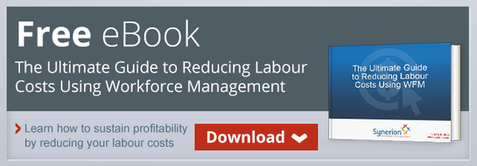 Whether you're just starting your business or leading your industry, productivity is always a top concern. When a workplace is reaching its maximum productivity, employees are challenged, business goals are met, and everyone benefits. When that productivity is lacking, more resources are spent on personnel and there is less to show for it. Consider whether these five factors are reducing your workplace productivity and how you can fix them.
Whether you're just starting your business or leading your industry, productivity is always a top concern. When a workplace is reaching its maximum productivity, employees are challenged, business goals are met, and everyone benefits. When that productivity is lacking, more resources are spent on personnel and there is less to show for it. Consider whether these five factors are reducing your workplace productivity and how you can fix them.
Poor Employee Health
Employee health isn't just a concern in the healthcare industry. Small and large employers in all business sectors are realizing that a healthy workforce is a productive workforce. Healthy employees use less sick time, spread less infections, and work more effectively. Putting your focus on employee health not only improves worker morale, but also saves money and productivity in the long run. Create a comprehensive sick policy to limit the amount of illness and absence in your workplace and work with your health insurance carrier to develop an employee wellness program. Encourage health and wellness in your company to improve productivity.
Restricted Access
Historically, there were entire jobs dedicated to gathering information. People made their livelihood finding the resources needed for another person to do their job. Today, electronic resources replace these positions. People expect information at the tips of their fingers both at home and on the job. A lack of employee access is one of the factors that could be holding back your productivity. Without easy access to policies, procedures, and company data, employees are forced to stop what they're doing and search out that data. If you aren't using a company intranet or other collaborative software, you're losing productivity.
Unexcused Time Off
When employers think about unexcused time off, they often jump right to unplanned sick days, but that's not the entirety of the problem. Late arrivals, early departures, and long breaks are more costly forms of unexcused time off that damage productivity. A single employee taking an extra 15 minutes during lunch costs that business 30 hours of productivity a year.
While it was harder to pin these excesses down in the past, today with time and attendance software, employers have all the information they need to prevent unexcused time off. Employee payroll should be closely monitored and employees should have a clear policy that outlines the appropriate time for breaks, arrivals, departures, and the consequences of not meeting that policy.
Outdated Systems
Just like you need to update your smart phone, company technology needs to be regularly updated. If you neglect those updates, you are costing the business productivity. Employees need up-to-date systems and technology to produce their best work and compete with those in your industry. Ensure that hardware is properly maintained and updated as needed to keep up with demand. Schedule yearly system reviews to determine whether your current workforce management system or payroll system is appropriate for your business or whether it's time to upgrade. Keeping tabs on your systems is one way to ensure that employees stay productive in the workplace.
Suboptimal Processes
Nothing hampers productivity quite like a lack of communication between front-line workers and management. When employees and managers feel as those there's no process for change and process optimization, morale is lowered and productivity is hampered. Encourage employee ideas and innovation by creating a clear process for change that anyone can initiate. Build a committee of "change makers" and give them the budget and the initiative to review employee-driven suggestions and put them into practice. Creating a clear-cut way to initiate change in the workplace can help employees reach their productivity goals.
